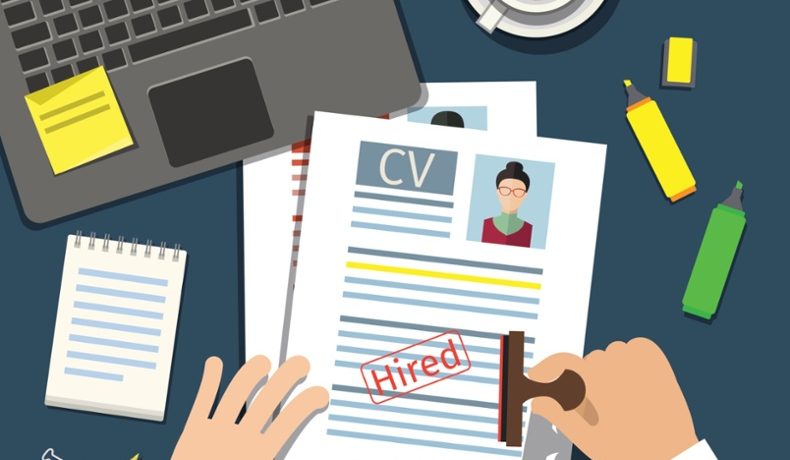physician interviews
3 Things Every Physician Should Look for at a Job Interview
Ah, the age-old interview questions.
“Where do you see yourself in five years?” “Tell me about a time when you failed to reach your goals and how you responded.” “What do you consider to be your strengths? What are your weaknesses?”
And these are only a few of the questions you should ask when you’re interviewing for a job.

Truth is, many people view job interviews as one-way streets, opportunities for hospital hiring managers to evaluate physician candidates based on a list of pre-determined criteria.
That’s true.
But it’s equally true that job interviews are opportunities for physicians to to evaluate prospective employers based on a list of predetermined criteria selected to ensure that the culture, commitment of colleagues and community align with career goals and professional values.
Yes, the job interview is actually a two-way street, and whether or not you continue down the path to employment should, in part, depend on these three things every physician should look for during an interview:
1. Interpersonal interactions
Communication is critically important in a hospital. It affects everything from the efficacy of treatment plans to the efficiency of healthcare teams to patient and physician satisfaction.
If you’re in an interview and notice issues with the interpersonal interactions of employees, beware!
Great hospitals are filled with employees who demonstrate compassion and respect with one another, their patients and the patients families. They have good energy. People interact with one another in friendly and supportive ways. They are authentic.

If you find yourself uncomfortable with the way people communicate with one another during a job interview, it could be a symptom of a work culture that’s less than ideal.
2. Overall organization
There are certain things that simply cannot be compromised in a healthcare setting–and organization is one of them.

As a physician, you have a better chance of achieving the best possible outcomes for patients when you work in an environment that is organized. Meetings start on time. Meeting participants are all on the same page, working off the same agenda and understanding of the meeting’s purpose.
If the interview starts late, it’s a bad sign (although there could be legitimate reasons for tardiness). If participants are not prepared, it’s a bad sign. If the interview process feels like a long walk in the dark woods, it’s a bad sign.
High-achieving organizations are highly organized. You want to work for an organization that is highly organized.
3. Balance
Physicians work hard to help their patients live better. But who is working to ensure physicians do the same?
In a perfect world, it will be your employer.
The battle for work-life balance has been raging in the healthcare industry for decades. Doctors simply work too much, put off caring for themselves, and often can’t escape their profession–even when they’re “off.”
The best healthcare systems believe in work-life balance. They offer ample vacation days, generous continuing medical education allowances, tuition, and travel expenses related to attending CME programs and understand that physicians need time away in order to avoid burnout.

Ask about all of these physician benefits during your interview, then watch closely to see how the interviewers respond.
Do they bristle at the idea of self-care, or do they seem interested in your well-being?
You know which response you want to see.
Ready to interview?
Job interviews are two-way streets. Make sure you are evaluating the interviewers and organization as much as they are you. It’s one way to make sure you take the right career path.
Learn more about opportunities at Elliot Health System–an organization that values communication, organization and balance.
![]()
5 Ways to Impress Recruiters at a Physician Job Interview

An impressive resume may get you in the door for your dream job, but you’ll still have to ace the physician job interview. The best first step is to list out your ideal position pay, benefits, location, practice type, patient load, and philosophy. From there, using the following tips will help you demonstrate that your skills and experiences make you an ideal fit for the given hospital or medical facility.
Prepare
Many candidates assume their resumes speak for themselves, but interviews give potential employers a sense of who you are off the page. So, as The New England Journal of Medicine pointed out, you should prepare well ahead of time in order to ensure that you portray yourself effectively. Showing up early and talking with office staff or noting interesting photos or honors will help spark conversations later. Both show initiative and engagement, and you can also take that extra time to review your resume and rehearse responses.
Be Consistent
In order to learn more about you recruiters tend to utilize performance-based and behavioral questions, like those provided by CompHealth. Employers hope to see whether you have the compassion and quick-thinking skills to handle working in their facilities. At the same time, any inconsistencies between your interview and your resume can lead to questions about your suitability for the position. So, be sure to regularly update your CV and proofread it before submitting. Then, during your interview, keep a copy on hand for your own reference.
Speak Honestly
You should also answer questions honestly during the physician job interview. Admit when you don’t the answer, and use it as an opportunity to explain your beliefs or highlight your background. Interviewers may ask a variety of tricky questions, as Health eCareers noted, but those about past work experiences are especially difficult. You should avoid badmouthing previous employers and instead use such questions to describe specific difficulties and how you overcame them – showcasing your skills and abilities instead.
Dress Respectably
Interviewees should dress professionally, as noted by the American College of Physicians. Avoid busy, tight, or revealing clothes – as they can lead to questions about credibility. Other guidelines include:
- Business suits, with skirt and/or tie
- Neatly trimmed or styled hair to avoid distraction
- Subtle make-up, with any visible tattoos covered
- Well-trimmed nails with no wild nail polish
- Little to no jewelry, generally limited to one ring and non-dangling earrings
It is also important to handle yourself respectfully; be polite, smile, look the interviewer in the eyes, and shake hands firmly. For group interviews, scan the room, holding eye contact as you speak.
Ask Questions
One of the most important ways to impress your interviewer is to ask the right questions, as a recent article in Medscape pointed out. To start, research each facility so that you can craft informed responses to questions about your fit with their mission, goals, etc. Then, create a list of potential questions, and use them to show your interest in joining each institution’s team. You could even focus on the top three reasons that physicians leave positions, namely culture, group decision-making, and supervisor attitudes and expectations.
Knowing what you want from your future position is essential to succeeding at the physician job interview and overall search. However, you should also remember that medical facilities are not looking for the ‘best’ physician – but for the one that best aligns with their institution and culture. You can always boost your odds by sending a thank-you letter, though, usually within 2 business days of your interview, as this shows your continued interest in the position.
—
Are you looking for a new physician career? Consider Elliot Health System!
![]()
What Information Should Be Included in a Physician CV?

The search for employment as a physician may seem like it requires as much patience and dedication as your initial medical training. Your curriculum vitae, or CV, is the most powerful instrument you have in your employment search. A physician CV gives a potential employer a detailed summary of your education, experience, and qualifications, along with relevant personal information that you decide to share. The following information presents a brief guide to the physician CV and what you should include in this critical document.
Contact Information
Include your full name, plus your mailing address, telephone number, cell phone and fax numbers, and email address. This can also be an appropriate place to list your personal website address or a LinkedIn profile page.
You can list both personal addresses and professional addresses in this section, such as your address at a professional office, clinic, or hospital. Indicate clearly which address is which. If any of these addresses are temporary, also indicate this information.
Educational Background
List your complete educational background, starting with your undergraduate degree, any graduate degrees, and your medical degree. Include the complete name and address of the colleges, universities, or medical schools you attended, along with information on major courses of study and degrees attained.
This is also a place where you can list any academic honors you earned, including memberships in any academic honor societies.
Internships, Residencies, and Fellowships
Include details on all internships, residencies, and fellowships you completed. Provide the name of the organization or medical establishment where you were an intern, resident, or fellow, including full contact information for the organization. Include information on your medical specialty, any leadership roles you assumed, and notable accomplishments you made during your training.
Licensure and Certification Information
Provide a list of your medical licensure, with information on specialties, along with board certifications or any other credentials you hold. It is not necessary to include license numbers with this information.
Professional Experience
Your physician CV should include a detailed list of your professional experience in the medical field or related area, such as medical research or administrative positions. It’s usually better to highlight professional experience that is related to the type of position you’re seeking. For example, if you are looking to join a hospital or an active practice, highlight previous positions that involved direct patient contact and care. A separate section dealing with experience related to the position you’re after, along with another section describing other medical positions, could be effective.
Part-time positions should be listed separately from full-time positions.
Experience should be listed in reverse chronological order with the most recent position first, then the next most recent, and so on.
Include information such as position held, organization name and address, dates of employment, and a description of your duties. Provide as much quantifiable information as possible, such as the number of patients under your care, the number of residents or staff members you supervised, and so on. Note any relevant achievements you were responsible for in these positions.
Publications and Presentations
Include lists of professional publications, including bibliographic citations such as the name of the periodical where the publication occurred, date of publication, and page number (if relevant). For presentations and lectures, include the title and subject of presentation, where the presentation was made, and the organization or event that hosted the presentation.
Professional Affiliations
Provide a list of professional affiliations, such as medical organizations, industry associations, or other relevant memberships.
Professional References
Provide a list of professional references with names, positions, addresses, telephone numbers, email addresses, and relationship to you in your professional position.
—
Is your CV ready? Check out what Elliot Health System has to offer you!
![]()
Career Hunting: How to Prepare for Your First Physician Job Interview

Interviews are nerve-wracking at all levels of the medical profession, but they are especially stressful for aspiring physicians, who must field questions about everything from specific medical procedures to medical ethics. Fortunately, even the worst interviewer can improve with practice. Keep the following considerations in mind as you discover how to prepare for a physician job interview.
Research the clinic or hospital
The more you know about the culture of the practice or hospital in which you hope to work, the better you will understand how and why you are a good fit. Personal research should extend beyond merely glimpsing at the practice’s website and Facebook page. Experts at the New England Journal of Medicine recommend that all job candidates conduct in-depth internet searches to determine which other clinics the practice is affiliated with, what types of studies it has been involved in, and how its staff members are perceived by patients and medical professionals practicing elsewhere.
Be prepared for common interview questions
No two interviews are exactly alike, but certain themes tend to emerge again and again. The following questions are especially common:
- Why did you choose to go into medicine?
- Why are you interested in this particular position?
- Are you currently seeking employment at any other medical practices?
- How do you handle pressure in a professional setting?
You should be prepared to answer these questions, you also will need to avoid sounding overly rehearsed. Think long and hard about your goals as a physician and use this passion to guide your responses.
Practice answering unusual questions
Although the questions listed above are bound to come up as you learn how to prepare for a physician job interview, the interviewer may also ask several very specific questions designed to assess your medical expertise and your problem solving skills. You will need to develop an ability to respond quickly and succinctly to challenging and unexpected questions. The best way to hone this ability is to pair up with a fellow job seeker or former medical school classmate and ask each other purposefully difficult questions that you’ve drafted for the sake of practice.
Prepare a few questions of your own
Interviewers do not look favorably upon job candidates who, when asked whether they have any questions, fail to show that they’ve done their research. Thus, it is imperative that you prepare a handful of detailed questions that demonstrate your medical expertise. These questions will differ greatly depending on the nature of the organization with which you hope to work, so avoid the temptation to follow a one-size-fits-all approach and use the same questions during every interview.
Stick with conservative business clothing
The question of how to prepare for a physician job interview is not merely answered with good questions and research. Attire also plays an important role. If your outfit is too casual or too formal, it really doesn’t matter how well you answer questions; interviewers will come away only thinking of your inappropriate attire. When in doubt, opt for conservative business dress. This means a standard business suit for men, and either a skirt or pant suit for women. Medscape advises interviewers to keep jewelry and cologne to a minimum.
A good interviewee is professional, knowledgeable, and passionate. A great interviewee possesses not only these qualities, but also a confident demeanor. The best way to acquire this confidence is to conduct thorough research and to practice interviewing as often as possible.
Want to learn about job openings at Elliot Health System? Click the button below now:
![]()







Recent Comments